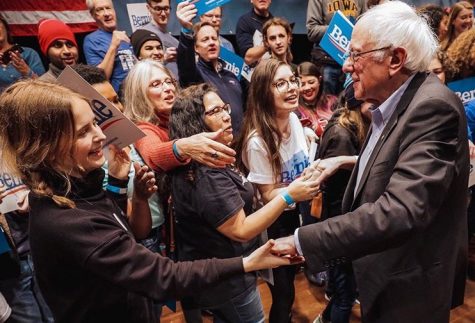Wall Street Occupation: The 99%
Over the past months, thousands have descended on Wall Street, state capitals, and campuses, in the USA and overseas, as part of the growing Occupation movement. The movement is protesting greed in politics and corporation. The largest of these protests is the Occupy Wall Street protest, which has persisted for more than a month. Recently, the Occupy Wall Street movement released their official manifesto, which outlines their grievances against the avarice present in today’s world. The Wall Street Occupation protesters claim to stand for the 99%, or the average people, and in most respects they do. Protesters call for an end to “money politics” in which policy is influenced by corporation, and for an end to corporate greed.
However, the problem isn’t with corporation or Wall Street because of what they are; the problem is with who they are run by- the elite 1%. The political system must work to distance itself from the influence of the elite 1%. Policy in our country must be under the control of those it affects – the average individual – not the control of the billionaires. It is hardly democratic when the general will is of less consequence than the will of the elite. The problem doesn’t lie solely with either the capitalist system or the government. The capitalist system is not inherently evil, and, as Winston Churchill once said,
“It has been said that democracy is the worst form of government except all the others that have been tried.”
However, some protesters are taking exception with the capitalist system itself, some claiming that “Capitalism is Organized Crime.” The problem is not with the capitalist system. The pursuit of profit is just as American as the pursuit of happiness, and competition between corporations helps to build our economy and create a better environment for the consumer if done correctly. The problem arises not with the pursuit of profit, but the with methods of that pursuit. Corporations must pursue profit the right way: by producing higher quality products at lower prices, not by using money to influence policy in their favor. Capitalism is not an issue in and of itself, and we must not confuse a system led by corrupt people with a corrupt system.
Although I cannot deny the existence of blatant corporate greed, one must realize that just as a country relies on its citizens to build it up, the only thing truly capable of bringing a nation to crisis levels such as these are people themselves. We cannot choose to pass off all responsibility to Wall Street, although much of it is theirs, and complacency in the general populace is still a huge issue. The Occupation Protests occurring worldwide are inherently democratic- people standing up against an injustice. No doubt the current economic problems were strongly aided and precipitated by corporate greed, but that is not to say that Wall Street should shoulder all the blame.
Individual responsibility seems to have gone extinct in today’s society: politicians blame the opposing party, individuals blame corporations. We are too willing to complacently cast off our own responsibilities and too willing to highlight othersâ faults. To escape from this quagmire, both we, as individuals and as corporations, must learn to manage ourselves with prudence and diligence. The economy cannot improve without the improvement of each of its facets: political economic policy, corporation, and consumers. The influence that money holds over politics, and therefore policy, must be eliminated. Corporation must continue to pursue profit, but in a constructive manner: instead of spending money to influence policies which would help them, corporations must focus on making better, cheaper products.
Your donation will support the student journalists of Ames High School, and Iowa needs student journalists. Your contribution will allow us to cover our annual website hosting costs.

























